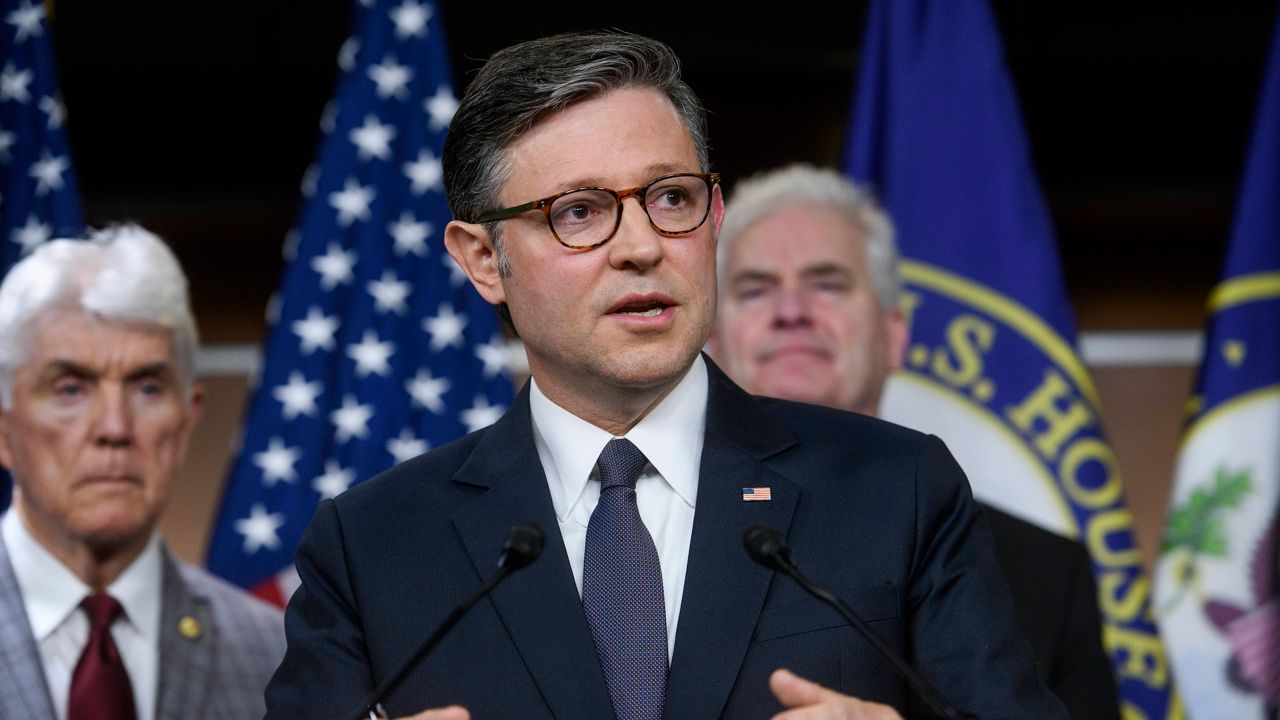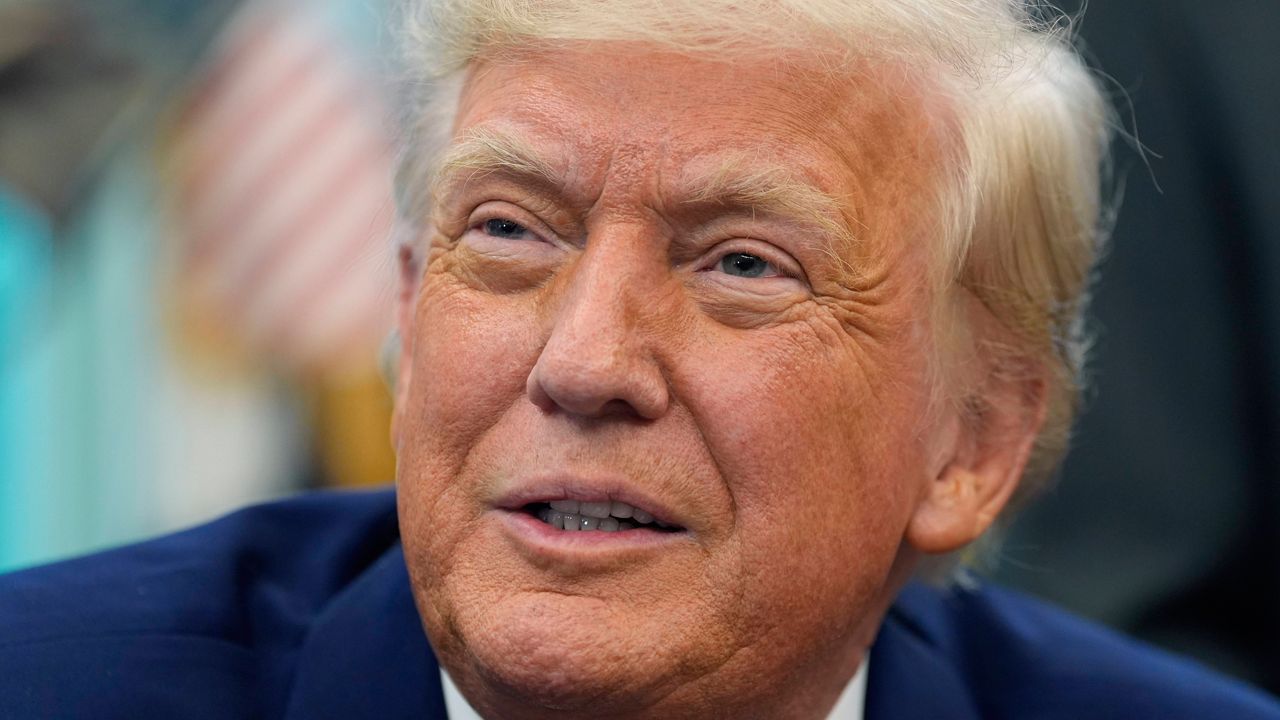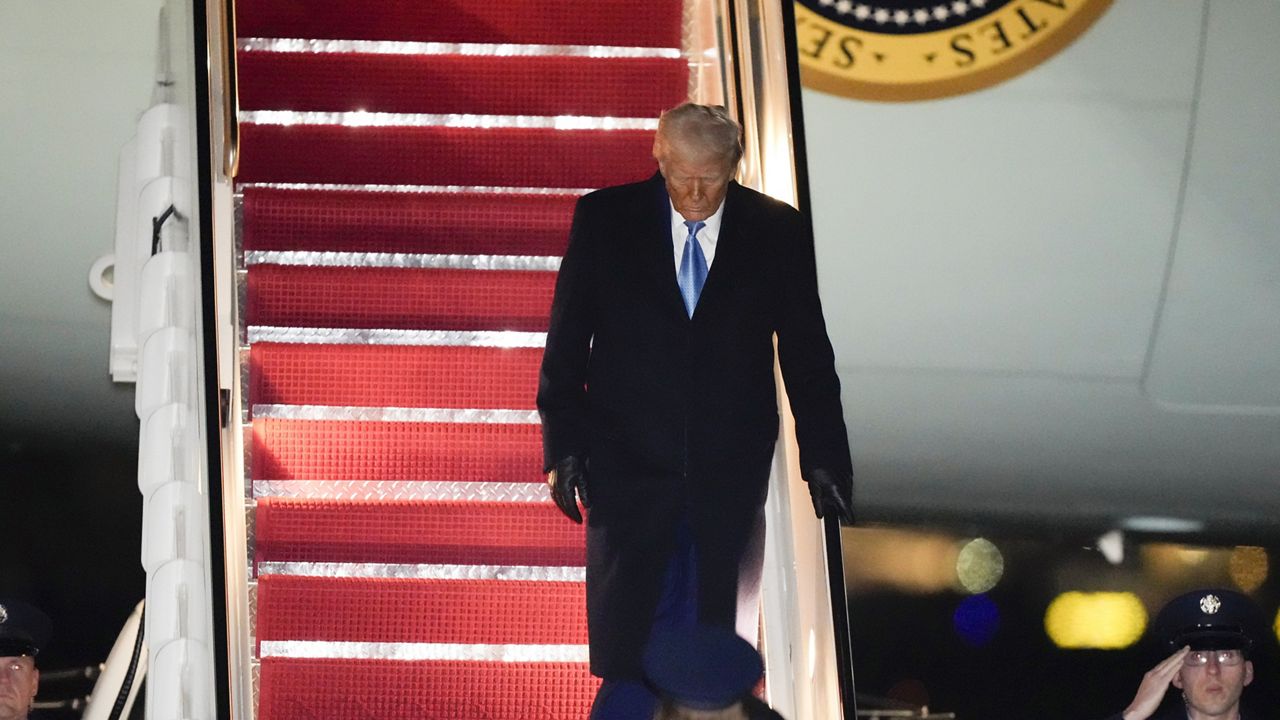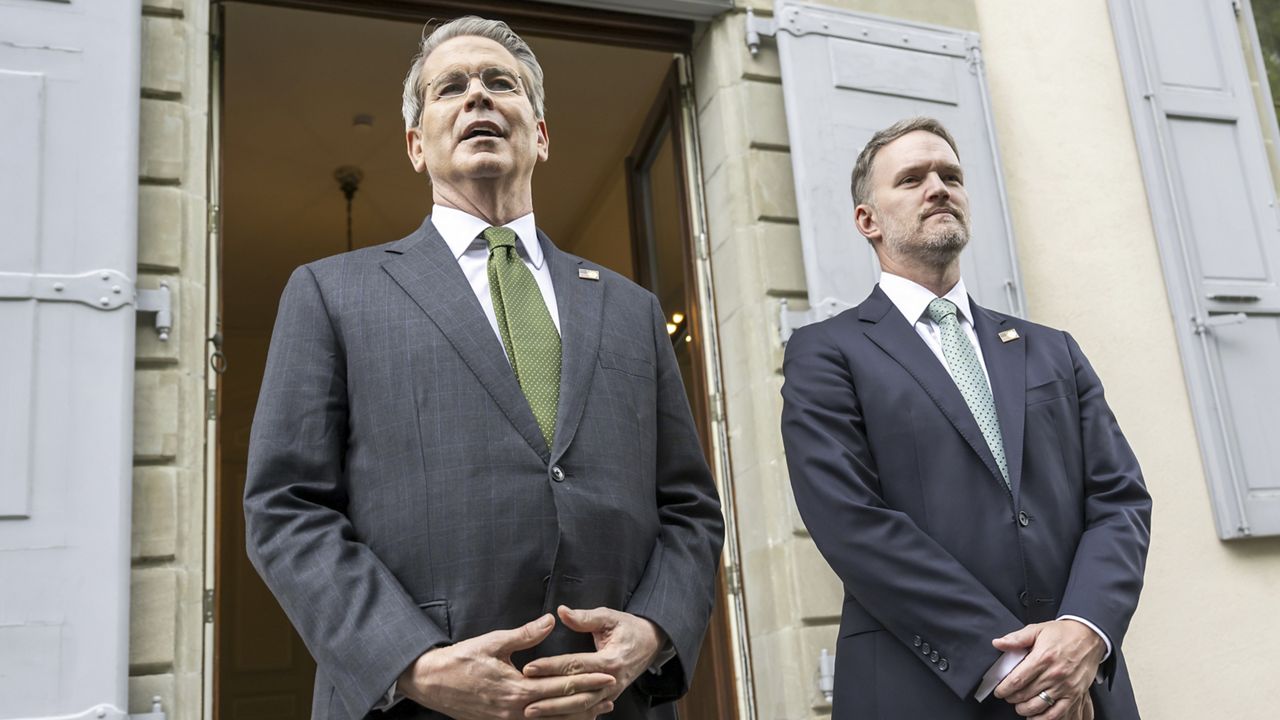The accusations of disloyalty made by a Texas Congressman last February were not the first bigoted insults faced by Chinese American Rep. Judy Chu, nor are they likely to be the last.
Rep. Lance Gooden, R-Texas, created a political firestorm during a February Fox News appearance when he questioned Chu’s “loyalty or competence,” adding that she should not receive classified briefings. His statements came following her support of a Biden administration nominee alleged by conservative media of having ties to the Chinese Communist Party.
“I was outraged. I was disgusted by it. But most of all, I was angry because it perpetuated a terrible stereotype of Asian Americans being the perpetual foreigner — of always being a foreigner in their own country,” Chu, D-Calif., told Spectrum News. “What was so gratifying is that leaders across the nation also issued statements expressing their outrage.”
But the reaction to those comments — from Congressional Democrats, Republicans, advocacy groups and the public — was a heartening show of support for the daughter of a second-generation American and a Chinese immigrant who never thought she had a place in politics.
“I think that is out of bounds. It’s beyond the pale,” Rep. Mike Gallagher, R-Wis., said days later during an appearance on “Face the Nation,” one of many officials from both sides of the aisle who chastised the Texan.
”I was born in America. Now, I've been an elected official in America for 37 years, my father fought for this country. How much more American do I have to be to be considered American?” Chu said to Spectrum News.
Chu’s father, Judson, served in the United States Army in World War II. As part of the G.I. War Brides Act of 1945, he brought Chu’s mother, May, back to California. Chu, born in 1953, spent her younger years in Los Angeles before moving to the Bay Area.
“I know what the experiences are of immigrants who come who don't know the language. My mother was lonely, isolated, and did her best to learn English when she came here,” recalled Chu of her upbringing. “My father was All-American; he enjoyed, and taught us what it was to be an American.”
But Chu admits that, growing up in an immigrant household, she “never thought” she would become an elected official.
She began her college career at the University of California, Los Angeles, as a math major who thought she would be a computer scientist until she was one day handed a flyer for an Asian American Studies class.
“And I thought, wow, how interesting,” Chu said. “A light went off in my head, because I learned about the laws that impose discriminatory practices on Chinese Americans. I learned about the incarceration of Japanese Americans. These are things that were done to us by the U.S. Federal Government, by Congress and the president. And so I felt that I had to change my major and become involved.”
Chu spent 20 years as a psychology professor in the Los Angeles Community College system. Her first foray into politics began in 1985, when she ran for and won a seat on the Board of Education for Garvey School District in Rosemead, Calif.
But Chu says she never thought of herself “having a place in electoral politics” until a wave of anti-immigrant, English-only sentiment swept through Monterey Park.
“There were new immigrants moving into the city, and the longtime residents had a really hard time with it. So they wanted English only on the signs in the city, only English books in the library,” explained Chu. “But the last straw was when they passed resolutions of the city council saying that only English should be spoken in the city.”
A multi-ethnic coalition formed, gathering thousands of signatures on petitions to overturn the resolution. But it soon became apparent that the City Council wasn’t representative of its citizens. Chu ran for a council seat “to bring people together to show that diversity was an important value for all of us,” she said. She ended up serving on the council for 13 years, serving three terms as mayor.
Following her time on city council, Chu ran for a seat in the California State Assembly, and served from 2001 to 2006. But the journey to Sacramento was not easy.
“It was tough because it was a really entrenched old boys network that didn't let in people like me,” recalled Chu. “But then, a mentor came to support me in this race, and that was then-Congressmember Hilda Solis, her support gave me the boost I needed.”
Solis, who represented California’s 31st and (after redistricting) 32nd district, was later nominated and confirmed to be U.S. Labor Secretary under President Barack Obama.
That left a Congressional vacancy that Chu decided to chase.
“I never saw anybody like me. So I never even for one millisecond thought that I would be an elected official, let alone a Congress member,” Chu said.
Chu ran for the seat in a special primary election in May 2009, and while she topped the crowded field, she did not secure more than 50% of the vote, forcing a special general election in July.
Chu recalls “vividly” the days following the election. She said President Obama called “to congratulate me on becoming the first Chinese American woman elected to Congress.” Two days after the election, Chu was already on her way to the nation’s capital.
“I had to be in Washington D.C. to get sworn in because there were some critical, Affordable Care Act votes. And so I remember getting sworn in in front of the entire Congress by Nancy Pelosi,” Chu shared. “Then we had a celebratory dinner that night. And somebody came to me and said, ‘you have to go to your first hearing.’ And I said, ‘now?’”
Chu, who was the newest member of the Education and Labor committee, was needed at a hearing for the Affordable Care Act — one that stretched from the evening, beyond midnight, before finally ending at 6 a.m. the next day.
“That was my first day in Congress!” Chu said with a laugh.
Chu has made a name for herself during her 14 years on Capitol Hill that stretches far beyond her district in California. Chu has helped to grow the Congressional Asian American Pacific American Caucus, where she is chair, and its political arm, the ASPIRE PAC.
“I learned when I ran for the state assembly, that there was not much of an infrastructure for Asian American Pacific Islanders who wanted to run for office, I didn't have many resources to turn to,” explained Chu. “I knew we had to build that infrastructure, that is a network of people who could support an Asian American candidate, and all the resources that are needed, like the consultants, the fundraisers, the people who could get the endorsements.”
According to OpenSecrets, Chu’s ASPIRE PAC — a political action committee that supports candidates of Asian American and Pacific Islander descent — raised over $1.2 million for candidates between 2021 and 2022. There are currently 21 AAPI members of Congress, which Chu called a “historic high.”
Chu has also become a household name for her continued crusade for the Women’s Health Protection Act, proposed reproductive rights legislation that’s taken on magnified importance following the Supreme Court’s 2022 decision to overturn Roe v. Wade. The bill, of which Chu is the primary sponsor, would codify the right to an abortion in the United States Constitution.
The WHPA passed through the House in both 2021 and 2022, but stalled in the Senate after failing to get the 60 votes needed to overcome a filibuster.
“It actually was the most supported pro-abortion bill ever passed out of Congress in our history. So we came that close,” Chu said. “So what I can say is that I can see victory on the horizon, I really feel that we can do it, maybe not right this minute, but it is there in the future.”
But Chu says her proudest moment so far in Congress remains the passage of a resolution of regret for the Chinese Exclusion Act of 1882, a bill that prohibited immigration of Chinese laborers for ten years, stoking xenophobic rhetoric and intentions toward Chinese immigrants and Chinese Americans.
The bill was officially repealed in 1943, when China became a part of the Allied Nations in World War II, but the damage had already been done.
“As soon as I got elected, a national coalition of Chinese American groups said, ‘Judy, the Chinese Exclusion Act of 1882 was one of the most discriminatory laws ever passed in Congress. It was there for 60 years and made Chinese Americans class second class citizens by prohibiting them from becoming naturalized citizens,’” she recalled. “‘There was never an apology for it, will you carry that bill? So I did. And ultimately, we got this expression of regret passed in the U.S. Senate, and in the House finally, after all these many decades of discrimination and suffering by Chinese Americans.”
That discrimination and suffering by Asian Americans has only been magnified in recent years, following the COVID-19 pandemic and the recent calls for competition with China. Chu called the heightened xenophobic attacks based on the growing U.S.-China tension “worrisome.”
“It comes on top of three years of anti-Asian hate due to President Trump calling COVID-19 ‘the China virus’ and ‘kung flu.’ We have experienced 11,500 acts of anti-Asian hate, and they have ranged from everything from being yelled at with racial slurs, to assault and even to killings. So here, now we have these xenophobic comments made by people due to this anti-China tension, and we have to fight back.”
Chu called the tensions between the two countries “real,” but is also urging Americans to look at it as economic competition.
“If that xenophobic rhetoric gets even worse, we know what can happen,” reminded Chu. “When the tensions between the U.S. and Japan reached its boiling point due to economic tension, Vincent Chin was killed at a bar in Detroit by two automakers, who yelled at him that he was taking our jobs away. And as a result, they bashed his head in with a baseball bat. And they didn't have to serve a day in jail.”
Chu was at the heart of Monterey Park’s mourning and recovering, following the Lunar New Year mass shooting at a dance studio, killing 11 and wounding nine others in February.
“It was incredibly devastating because we think of Monterey Park as a very peaceful place where seniors can enjoy themselves with Tai Chi in the morning and just walk to their favorite noodle shop,” Chu said. “It was really, really hard for everybody, including the whole community who no longer felt that the area was safe.”
Chu took action immediately, co-sponsoring an assault weapons ban, and calling for national leaders to come and offer federal support to community members and local businesses.
“The most important visit was by President Biden, who came to console each of the victims' families,” Chu said. “And he was of immense help in getting this community to heal and on top of that, issued an executive order to curb gun violence.”
As for the recent xenophobic attack she faced from Rep. Gooden, Chu said he has not apologized for the insult.
“No, of course not. He actually doubled down on it. So you know, he has very entrenched ideas, he's not going to back down from that,” she said with a shake of the head. “It is not Lance Gooden that will make me whole. What will make me whole is the response of the American people to stand up to this kind of xenophobic bigotry. Because if it can happen to me, it can happen to many, many others in the United States.”









